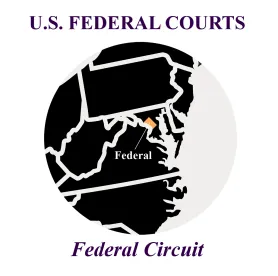In a redux visit, the US Court of Appeals for the Federal Circuit found that the record compelled reversal of a district court’s refusal to reinstate a jury’s willful infringement verdict and enhanced damages award but affirmed an attorneys’ fees award, taking into account the finding of willful infringement. SRI International, Inc. v Cisco Systems, Inc., Case Nos. 20-1685; -1704 (Fed. Cir. Sept. 28, 2021) (Stoll, J.)
This is the second appeal in the case. In the first appeal, the Federal Circuit found that the record was insufficient to establish that Cisco’s conduct before May 2012 (when Cisco became aware of the asserted patents) rose to the level of wanton, malicious and bad faith behavior required for willful infringement. In view of the finding, the Court concluded that Cisco could not have willfully infringed and therefore vacated the district court’s enhancement of damages for pre-May 2012 conduct. As for post-2012 conduct, the Court remanded the case to the district court to decide in the first instance whether the jury’s finding of willful infringement after May 8, 2012, (the date Cisco received notice) was supported by substantial evidence. The Court also vacated the district court’s decision to award SRI its attorneys’ fees and remanded for recalculation. On remand, the district court interpreted the original Federal Circuit opinion as requiring a more stringent standard willful infringement and concluded that substantial evidence did not support the jury verdict of willful infringement after May 8, 2012. SRI appealed.
In the second appeal, the Federal Circuit determined whether the record demonstrated that substantial evidence supported the jury’s verdict of willful infringement after May 2021. In analyzing willful infringement, the Court reviewed the instructions provided to the jury on induced infringement:
“Defendant is liable for active inducement only if plaintiff proves by a preponderance of the evidence” that, among other things, (1) “Defendant took some action intending to encourage or instruct its customers to perform acts that you, the jury, find would directly infringe”; and (2) “Defendant was aware of the asserted patents at the time of the alleged conduct and knew that its customer’s acts (if taken) would constitute infringement of an asserted patent.”
The Federal Circuit found that the jury considered the evidence provided by SRI in view of the instructions on induced infringement and that Cisco induced infringement of the asserted claims. Acknowledging that the standard for induced infringement is different than that for willful infringement, the Court nevertheless found that the jury’s unchallenged finding related to induced infringement (i.e., Cisco did not challenge the jury’s findings on appeal) and, combined with Cisco’s lack of reasonable defenses to infringement, was sufficient to support the jury’s verdict of post-2012 willful infringement. Since Cisco was found to have willfully infringed on the asserted patents, the Court determined that SRI was entitled to enhanced damages.




 />i
/>i

